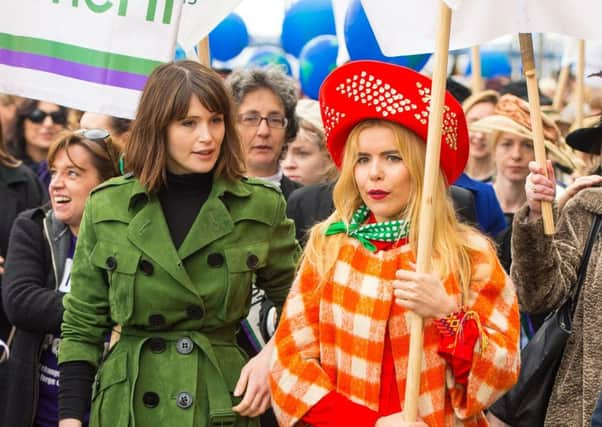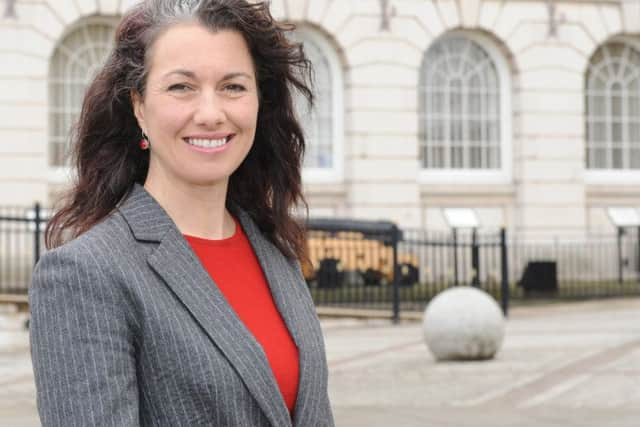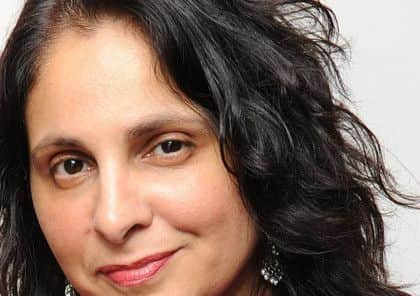International Women's Day: The big issues facing women today


Paula Dillon, partner in Bond Dickinson LLP in Leeds.
I recently saw a quote that read: “The best way to ensure that a woman does nothing is to ask her to do everything” and it got me thinking.
Compared to our grandmothers, our position in society has advanced enormously. Equal rights are enshrined in legislation and there should be nothing stopping us. But many women exhaust themselves, trying to conform to traditional expectations of women who worked in the home whilst, at the same time, shouldering the burden of contributing to the family finances.
Advertisement
Hide AdAdvertisement
Hide Ad

Globally, women do two thirds of the work. Yet they earn only one tenth of the world’s income and own less than one percent of property. In the UK, women spend three times as long on domestic chores as their husbands or partners. Until we stop doing this to ourselves, no amount of legislation or diversity policies will help us.
This was brought home to me some years ago, mentoring a very able woman who wanted to make partner in a firm. She left her first mentoring session halfway through when her husband called to say he now had a meeting and couldn’t collect their children. She was sacrificing her own personal development due to her husband’s bad diary management. Not wanting to cause a divorce, I didn’t say anything but I have never forgotten it.
In the workplace, women often accept tasks and roles that are shunned by ambitious men, because we think we have to do them in order to demonstrate our worth. Alpha males, meanwhile, see themselves as too important to do them and don’t stop for a second to think about having to earn their rightful place.
So when we expect more of ourselves, let’s make sure that the “more” is more advancement, more equality and more recognition, rather than just more graft.


Abbie Coleman, founder of Mothers Mean Business.
Advertisement
Hide AdAdvertisement
Hide AdI think that society, on the whole, still fails to recognise that a talented woman can have a successful, progressive, mid-high level career and be a great parent. Unfortunately, at the moment, it seems that one has to be sacrificed for the other, which tends not to be the case for men.
Time and again I see women with a wealth of experience considering roles well below their pay grade and ability, simply because it is the only flexible employment available. We typically only see lower level positions – ‘jobs’ not careers – available on a part-time basis. However, the need for part time hours shouldn’t exclude women from the business table they previously sat at.
Employers need to think about the options they offer, and the benefits their organisations could experience as a result. A recent report looking at the role of women in business found that companies perform better when they have at least one female executive on the board.


Motherhood shouldn’t mean that talent is mothballed. If we don’t embrace the fact that women may have children and may need flexibility within the workplace, how will we ever see more females instigating positive business change?
Advertisement
Hide AdAdvertisement
Hide AdKitty North, landscape painter with studios in London and North Yorkshire.
Painting for me is a language whether you are male or female, yet any discussion about great artists conjures up men. The reason for this lack of a ‘female Rembrandt’ was the exclusion of women from many cultural and social activities through until the 1900s, during which time much of the world’s great art was created.
Despite this a few women did become artists before the 20th century, as daughters of painters, or, due to their status in society that let them break through the barriers. It wasn’t until later in the 20th Century that an explosion of creative opportunities arose for women. During the past 18 months, BBC Arts in the guise of Amanda Vickery, journeyed from Renaissance Italy to the Dutch Republic revealing a hidden world of female artistry. The Tate has given recognition to the work of female artists from the 1960s and 70s - artists long ignored by a male-dominated art establishment - in its recent World Goes Pop exhibition. The value of our work, though still not the same, is getting better thanks to a shift in art world patrons now that more women are financially independent and able to make their own choices.


Barbara Hepworth once said: “Women did not wish to emasculate men, but they wished for the respect women gave men”. Finally, we are getting that respect.
Rachel Reeves, MP for Leeds West.
Advertisement
Hide AdAdvertisement
Hide AdWhen Yorkshirewoman and Employment Secretary, Barbara Castle, introduced the Equal Pay Act in 1970 - it was one of the ground breaking pieces of legislation for women in work. But 46 years after the Equal Pay Act, the job is not done. Women on average still earn 81p for every pound earned by a man.
Today’s battles for women’s equality are different from those of the past. It is now illegal to pay women less than men for doing the same job, exclude them from pensions or sack them upon marriage. However, women still account for the majority of people on zero-hours contracts and more than 60 per cent of those earning less than the living wage.
Women are more likely to take time out to bring up children, work part time as they balance work and family life, and take time out later on to care for elderly parents and grandchildren. Working part-time does not make you any less productive or useful in work, but part-time workers are paid less, promoted less and looked-over more.
The world of work has changed hugely in my lifetime. When I was born there were just 19 women MPs, today there are 191. The pay gap between men and women has closed and there is now at least one woman on the board of every top FTSE 100 company. But, when my young son and daughter enter the world of work I want the remaining barriers broken down, so men and women can both make the best of their talents.
Advertisement
Hide AdAdvertisement
Hide AdAdeeba Malik CBE, deputy chief executive of QED Foundation, a Bradford-based national charity.
It’s bad enough to face discrimination in the workplace because you are a woman or a Muslim. But if you are both, the chances of ever fulfilling your potential can be very slim.
Labour Force Survey data shows that 36 per cent of Pakistani women are overqualified for the job they do, compared with 26 per cent of their peers who are white and born in the UK. Successfully negotiating the recruitment process, let alone being promoted, is fraught with difficulty when you are faced with employers who make conscious or unconscious assumptions based simply on your name, your dress or your religion. Black women face similar challenges. Although they are more likely to have a degree than their white counterparts, they earn less and are more likely to be unemployed.
But women from ethnic minority backgrounds do overcome many obstacles to make it to the top. In business, law, politics, academia and the creative industries, they are increasingly breaking the white, middle-class male monopoly of senior jobs.
Advertisement
Hide AdAdvertisement
Hide AdWe have come a long way since I first started campaigning for Muslim women to be represented in all areas, and at all levels, of public life - yet much still needs to be done. More family support and mentoring from successful role models will help. So will greater visibility of ethnic minority women in an increasingly diverse range of careers. But first and foremost we need to see a great shift in the attitude of employers and wider society to address the under-representation of ethnic minorities in the workplace. Only when employers base recruitment and promotion decisions purely on ability and motivation will that battle have been won.
Dr Rebecca Heaton, head of sustainability at Drax.
I have spent most of my career in very male dominated industries. I’m a forestry graduate and a Fellow of the Institute of Chartered Foresters and started my career working outside with gangs of men - often in physically challenging environments. At times getting respect was tough – but things like having a chainsaw licence, a can-do attitude, and a good sense of humour helped.
As I moved to more office based and senior roles, mainly in the oil and gas sector, I found that gender issues mattered much less. The exception was when I had time off to have a baby (my son Harry is now five) - having time out of the office, and then returning to work with a young baby at home is tough – acknowledging this and supporting women during and on return from maternity leave is important.
A year ago I moved from the oil industry to Drax - as Head of Sustainability - and I’m pleased to be able to say that I was employed entirely on my ability to do the job. This has always been very important to me - being treated equally rather than preferentially. I now find gender not to be an issue at all.
Lara Grylls, chief executive of PR First.
Advertisement
Hide AdAdvertisement
Hide AdDoes today’s woman really have the freedom to choose her way in the world, or do the expectations of our society have a stronger pull?
Women in previous generations had very little choice. In fact the only real choice was to marry or not. With the former came love and support if you were lucky and a “job”. That “job” was housekeeper and/or mother. With marriage came security but opportunities for single women were much more limited.
So what are the choices for women today? First is the question of marriage and whether you want children. Then the question is do you work or not? But what do we mean by “work”? Is work only leaving the house and going to an office, or is it choosing to be a full time housewife and mother? Are these roles valued?
From the day I left school, I knew I wanted to decide my own fate and role in the world. My father was a politician and back in the early 70s a politician’s wife and children were important to his (very rarely her) success.
Advertisement
Hide AdAdvertisement
Hide AdMy mother had a job, but not one that she would have chosen, it came with her marriage. And she was good at it. I grew up knowing how to converse with people and be creative. Other girls my age might have been learning how to garden, cook and manage a house. I learnt none of this.
I had watched my grandmother struggle as the youngest and first Ulster Unionist MP for Northern Ireland. Sadly, she couldn’t cope with juggling a political life with being a mother and regretted this to her dying day. So, in my early 20s, knowing that if I wanted to be a wife and mother it couldn’t be in politics. I was lucky to discover a job in Public Relations aged 21 and never looked back.
When I got married and moved to Yorkshire in my late 20s it never occurred to me to give up my career. However, I have been lucky to have a wonderful team of people working in my office that has enabled me to work from home. But it has not been easy juggling this with family life and sometimes I curse the choices we now have as women in the 21st century. Eighty years ago a lady of my ilk would have none of these choices which, it could be argued, made life a lot easier. My advice to women now is make your choice and be proud of it. If you love domestic life and gardening and cooking – fabulous, go for it. If, like me, it doesn’t come naturally then go out and earn the money doing what you are good at and pay somebody else to weed the garden.
Sarah Champion, MP for Rotherham.
I want to draw attention to an issue that we as a society must address; that of domestic abuse. Domestic abuse is a crime under which women are overwhelmingly the victims. Two women are killed every week by their partner. A horrifying and sobering statistic. Last year there were 1.4 million women who were victims of domestic violence and shockingly, only 37 per cent of those being abused by their partners reported it to someone in authority. There are so many more women out there who need help, and we have a duty to provide it.
Advertisement
Hide AdAdvertisement
Hide AdUnfortunately, refuges for those fleeing violence have continued to close with 17 per cent of specialist refuges closing between 2010 and 2014. More are on the brink. But apart from providing these wonderful women’s charities with the resources they need, what can be done to prevent women needing to seek refuge in the first place?
I believe we must start early through education. If we are to protect women in the future, we must start talking to young people about healthy relationships. My campaign www.Dare2Care is looking at this very issue, focusing on prevention as the key in tackling various forms of abuse. We must also make relationship education statutory for children in schools so they understand consent, boundaries and respect.
So on International Women’s Day, let us take time to remember there is much still to do to keep women safe and give a personal pledge to make it happen.